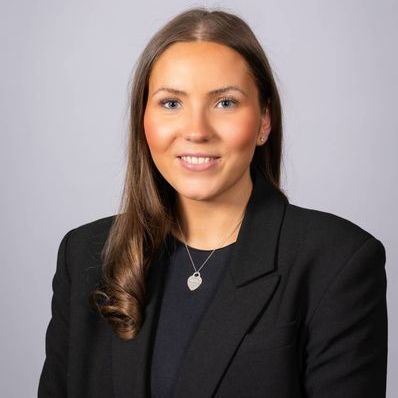Event round-up: What does the future digital infrastructure of the health system look like?
Alex Lawrence, Programme Manager for Health and Social Care at techUK, chaired a brilliant panel of techUK members:
- Nigel Brokenshire, Head of Digital Healthcare UK, Bayer PLC
- Heather Cook, Interim UK Director, Big Health
- Annelise Brbora, Co-Founder, Medicus Health
- Dr Constantin Jabarin, International CCIO, Allscripts
The state of our existing digital infrastructure
Alex began by asking how the UK’s digital infrastructure has already helped to alleviate the growing pressures on the healthcare system, such as an ageing population or increased prevalence of multiple comorbidities. The panel discussed the intelligent use of big data and how this has enabled clinicians to prioritise and address not just the ‘backlog’ but also wider health disparities. However, they stressed that if we were to look ahead to the next 5 - 10 years, we would still see fundamental gaps in our adoption of technology. For example, only with widespread access to fast and reliable Internet, coupled with the support of clinicians, can people begin to truly take control of their health.
The impact of the Covid-19 pandemic
The panel were quick to point out that despite the incredible acceleration of data and digital adoption and usage enabled by the pandemic, there are now some clear signs of over-stretch. As such, they suggested that the sector now undergoes a stock-take and turns its focus back towards consolidating existing solutions, re-evaluating evidence, and asking what is best for patients. Research was cited in which around 80% of mobile applications have not been updated for at least 18 months, with one panellist proposing an accreditation system as a way of enabling patients to make informed decisions about their health.
Joining up care
After explaining that a big focus of the recently published white paper ‘Joining up care for people, places and populations’ is proactive population health management and precision public health, Alex then asked what digital foundations are required to achieve this. Panellists stated that good data, a digitally comfortable workforce, and interconnectivity are all necessary, placing particular emphasis upon patient empowerment and scalable solutions that don’t increase the burden on the NHS. Thy mentioned that particularly in the UK’s A&E departments, in which activity is about the ‘here and now’, there is limited information available to clinicians. As such, we must achieve data harmonisation followed by simple but effective presentation. We were told that, crucially, actors should aim to collect a wide range of data and not let any ‘sit around’ without a clear use.
Our relationship with technology
Towards the end of the session, panellists were asked how we should relate to the digital technology we use every day. They stressed the need for user-friendly solutions developed through ‘human-centred design’ and argued that where possible, the technology should do the ‘heavy lifting’ (for example, through AI-enabled filtering). We were told that ultimately, data is worthless unless we can turn this into relevant information.
Hopes for the next decade
Nigel would like to see a connected health system in which a patient’s information follows them from service to service. He hopes that we can crack any informational challenges, connect innovations, and continue to build upon the momentum of the NHS app generated during the Covid-19 pandemic. He also wants the sector to flip the ‘data saves lives’ mantra to ‘data gives life’, reflecting a more positive and optimistic view regarding the use of data in health.
Heather is keen to see a complete transformation of digital confidence in the care-delivery workforce starting from the ‘grassroots’. She would also like to see digital therapeutics having the same acceptability and usage as drugs and hopes for the introduction of a clearer national reimbursement model.
Annelise stated that her hope is that technologies can become ubiquitous and play together well, stressing interconnectivity over pockets of usage. She would like to see a transition from ‘sickcare’ to ‘healthcare’, largely enabled by a stronger prevention agenda.
From a patient perspective, Constantin wants to see a continuation of the ‘own patient data’ revolution that began during the Covid-19 pandemic, whilst from a clinician’s perspective he would like solutions to start working for those on the ‘frontline’.
Q&A
The Q&A session touched upon the importance of value-based healthcare (in which the focus is on the outcomes most valued by patients), a strong value proposition, and an approach that goes beyond the technology to also consider the human element behind health.





